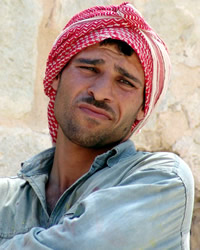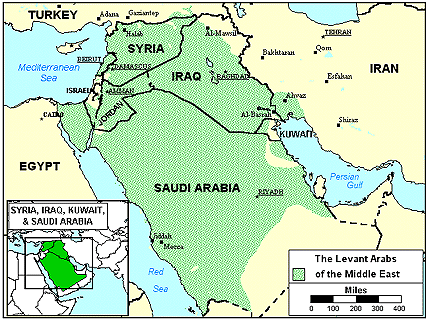Arabs in Switzerland are Swiss citizens or residents of Arab ethnic, cultural and linguistic heritage from many Arab countries, including Syria, who emigrated from their native nations and currently reside in Switzerland.
Syrians are among the Levant Arabs who originally settled all over the Arabian Peninsula and who later migrated to North Africa. Today, several hundred thousand Levant Arabs live along the northern edges of the Arabian Desert. They are spread from Israel to Kuwait and as far east as Iran.
Many Syrians have been forced to flee their country since 2011 due to the violent crackdown on the public demonstrations by the government that quickly escalated into a civil war that forced millions of civilians to flee the country. The fleeing civilians took refuge in many of the neighboring countries, including Switzerland.
In March 2012, the United Nations Office of the High Commissioner for Human Rights made a request to Switzerland to accept some Syrian refugees, and in March 2015, the Swiss Federal Council set a goal of accepting 3,000 Syrian refugees over three years. By September 2015, 5,000 Syrian refugees had received provisional permission to live in Switzerland with additional thousands applying for asylum. Currently, Syrians are the second-largest refugee and asylum-seeking population in Switzerland.
Arabs in Switzerland speak in their mother tongue Arabic and also the language which is official in the cantons of Switzerland. The four national languages of Switzerland are German, French, Italian and Romansh.
Most Syrians have a hard time feeling at home with Swiss weather and culture. There is a huge culture gap. Syrians are a communal people, while many Swiss live alone or with one or two others, and definitely not with extended family.
Swiss people do not go to the marketplaces to socialize and are not accustomed to hospitality or talking with strangers. For these and other reasons, many Syrians face stress in adjustment to their new place.
While many have incorporated themselves into Swiss society, with education and employment opportunities, a few of the Syrian Arabs hope to return to their homeland once the crisis has passed. The refugees persevere to learn English and German, all the while getting re-established economically with employment. Switzerland is addressing the needs of young Arabs by promoting the development of vocational training, thus facilitating access to the labor market.
Syria is religiously diverse. There are Druze, and both Sunni and Shia Muslims in their country. Within the Shia, there are the politically powerful Alawites and Twelvers. Syria also has a high percentage of traditional Christians who are well represented in Switzerland.
The Syrian Arabs need training in job and language skills so they can get re-established. Many need trauma counseling after what they experienced in Syria. Any follower of Christ who reached out to them with these skills would be welcome.
As refugees and asylum seekers, they are susceptible to developing common mental disorders due to their exposure to stressful experiences before, during and after their flight. Besides physical health problems, Syrians also experience practical and psychological (emotional) problems. The most common practical problems are (problems with government and authorities, problems related to residence permits, problems with integration, cultural differences, language problems, problems related to education, problems related to employment, and problems with housing). Psychological problems include mental disorders and feelings of uncertainty, frustration and injustice.
Along with their countrymen in Syria and with the help of the Swiss government, the refugees strive for peace, security and human rights, migration and protection of people in need, sustainable development in economic affairs, finance, science, and digitalization and new technologies.
Pray for the physical and spiritual needs of the Syrian Arabs will be met in Switzerland.
Pray that Syrian Arabs in Switzerland will have a spiritual hunger that will open their hearts to the King of kings.
Pray for workers who are driven by the love and boldness of the Holy Spirit to go to them long term.
Scripture Prayers for the Arab, Syrian in Switzerland.
Arabs in Switzerland - Wikipedia
Bilateral relations Switzerland–Syria (admin.ch)
https://smw.ch/article/doi/smw.2020.20381
| Profile Source: Joshua Project |













